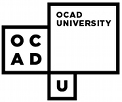Jutta Treviranus
This email address is being protected from spambots. You need JavaScript enabled to view it.
Table of Contents
Future Trends, Emerging Technologies and Students with Special Needs
The Networked Classroom: An Education Revolution
The Student Teacher Interaction
The Student Student Interaction
Practical Demonstrations, Experiments
Future Trends, Emerging Technologies and Students with Special Needs
Jutta Treviranus
Centre for Academic and Adaptive Technology
The Networked Classroom: An Education Revolution
End to every classroom as an island
- Professional fraternity between educators
- Linking groups around the world
Active collaborative learning and assessment
- Students as independent publishers of ideas and opinions
- Opportunities for peer review and group editing
- Inquiry based learning
Networked Classrooms
Political agenda of many governments
Developing countries leapfrogging developed countries
Networked Classroom
Linked to:
Other classes
Experts (Nano Project)
Electronic Resources
Events (NASA Interactive)
Explorers (Antarctica Project)
Windows in Space
Transformation of...
the textbook
the notebook, the exercise book
the student-teacher interaction
the student-student interaction
practical demonstrations and experiments
the field trip
the process of inquiry and research
The Textbook
The realization of the DynaBook
new display technology
TEA committee
e.g. Logal
The Notebook or Exercise Book
PDAs to teach handwriting
Ancillary materials as software
Immediate feedback
The Student Teacher Interaction
Better access to the teacher?
Time for higher level intervention?
Teacher as facilitator, moderator, guide
The Student Student Interaction
The global classroom
Peer review
Group editing
Creative inquiry
Collaborative problem solving
Practical Demonstrations, Experiments
Simulations
Remote manipulation
Collaborative construction
The Field Trip
The Magic School Bus
e.g. NSCA
Inquiry and Research
Emphasis away from searching to sorting and sifting
Validity of information
Relevance of information
Participatory inquiry
Students with Special Needs
Flexible pacing to meet individual needs
Curriculum can be presented in redundant, reinforcing or alternative formats
Curriculum can be adapted to learning styles
Student can clarify, rehearse, review supporting material without disrupting flow of class
Greater opportunities for peer interaction and collaboration and student-instructor interaction and assistance
4 Requirements
Capable computers
Networked classrooms
Educational software or content
Capable teachers
Transforming the Computer
New Displays
New Control Mechanisms
New Processing
New Displays
the Third Dimension
Haptic Displays
- Touch
- Force, Kinesthesia
- Texture
Audio
- localized
the Other Senses
New Control Mechanisms
Haptic control
Speech Recognition
Gesture Recognition
EEG
EMG
GSR
New Processing
Natural Language
Intelligent Agents
Machine Vision




